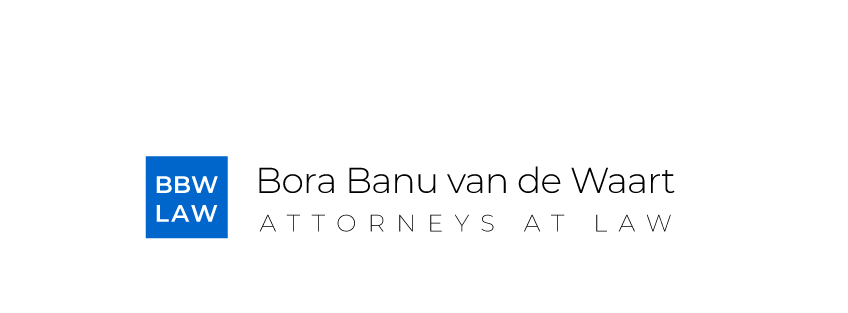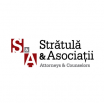Legal News by BBW LAW, February 2023
Thu | 23.02.2023
Legal
LEGAL NEWS
1. Renewable energy – No PUZ for 50 ha projects
On 10 January 2023, a new amendment to Law 50/1991 on constructions (Law 21/2023) was published with a significant impact on renewable energy projects. Thus, according to this amendment, the obligation to obtain PUZ (urban zoning plan) for the development of renewable energy projects located on agricultural land located outside the built-up area, with a maximum surface of 50 ha, has been abolished.
Thus the Law no. 21/2023 stipulates that building/demolition permits may be issued without the prior preparation, approval and approval of the urban planning documentation (including PUZ) for specific investments in the production of electricity from renewable sources (capacities for the production of solar energy, wind energy, energy from biomass, bioliquids and biogas, electricity storage units, transformer stations or other similar systems), developed on agricultural land located outside the built-up area, with a maximum surface of 50 ha.
The exception will apply only to agricultural land belonging to quality classes III, IV and V and having the category of arable land, pasture, vineyards and orchards, as well as those with land improvement works.
- However, it is not clear whether it is not yet necessary to approve a PUZ in order to obtain approval for certain urban planning parameters required for the constructions in question (POT – percentage of land occupation, CUT – land use index, height, etc.).
- Another aspect that needs to be clarified is whether the 50 ha limit only refers to the area exclusively impacted (the area that is permanently/temporarily withdrawn from agricultural use and use for the constructions) or also to the area that will remain in agricultural use (the total area of the project).
2. New amendments to the Tax Code
2.1. Sport subscriptions
The Law 34/2023 providing new amendments to the Tax Code introduces a tax facility for sport subscriptions, as follow:
- taxpayers carrying out independent activities : the deductibility of the sport subscriptions within the limit of EUR 400 per year; Such provisions have entered into force at 16 January 202.
- employees and employers: no tax income and no social contributions on the sport subscriptions within the limit of EUR 400 per year given by the employers to the employees. These sport subscriptions are also deductibles for the employers. The value of the subscription, together with all other extra-salary benefits granted by the company to the employee, cumulatively, must not exceed 33% of the basic salary. Such provisions shall apply starting with February 2023.
Subscriptions must be made only to operators with CAEN codes: 9311; 9312; 9313.
2.2. Reduction of VAT to 5% – photovoltaic panels, solar thermal panels, high-efficiency low-emission heating systems
The VAT for the supply and installation of photovoltaic panels, solar thermal panels, high-efficiency low-emission heating systems that meet the reference values set out in Annex V to Regulation (EU) 2015/1.189 and that have been assigned a European Union energy label has been reduced from 19% to 5%.
This reduced rate is only for panels and systems intended for residential and public buildings.
The stated purpose of the law is to reduce electricity consumption and consumer dependence taking into account the volatility of the energy market.
LEGAL INSIGHTS
Whistleblower – New Regulations and Obligations for Employers
As of 22 December 2022, Law 361/2022 on the protection of public interest whistleblowers came into force.
The law implements Directive (EU) 2019/1937 of the European Parliament and of the Council of 23 October 2019 on the protection of persons who report breaches of Union law.
Public Interest Whistleblower (the whistleblower) is any natural person who makes a report or publicly discloses information about breaches of the law, which was obtained in a professional context (employee, freelancer, etc.).
More specifically, according to Law 361/2022, information, including reasonable suspicions, may be reported regarding actual/potential breaches of the law, which have occurred or are likely to occur within the public/private legal entities where the whistleblower works or has worked in the public interest or with which the whistleblower is or has been in contact through his/her activity.
1. External Reporting Channel = National Integrity Agency
According to the new regulatory deed, the National Integrity Agency becomes an external reporting channel – an authority competent to receive reports about breaches of the law or to forward them to the competent authorities. In addition, NIA will provide confidential advice to persons intending to make a report as well as advice to employers for developing or reviewing internal reporting procedures and for follow-up on reports.
Also, in order to encourage and protect the whistleblowers, a series of obligations are established for the public and private legal persons.
2. Obligations of Employers
Please find below some of the obligations of employers established by this law, noting that the law imposes different obligations depending on the number of employees under 50, between 50 and 249, and over 250, including:
- Creating internal reporting channels and establishing procedures for internal reporting and for follow-up on reports – only for employers with more than 50 employees.
Employers with 50 to 249 employees can group together and use or share resources with regard to receiving reports about breaches of the law and with regard to follow-up on reports. The obligation for these employers to establish internal reporting channels will take effect on 17 December 2023!
- Keeping an electronic register in which reports are recorded.
- Keeping statistics on reporting – only for those with more than 50 employees.
- Keeping records of all reports for a 5 year period, then destroy them.
- The need to transcribe or record the conversation in the case of reports by telephone messages.
- The obligation to keep confidential the identity of the whistleblower as well as information that may lead to the direct or indirect identification of the whistleblower.
- The obligation to send a confirmation of having received the report to the whistleblower, no later than 7 calendar days after the receipt thereof.
- The obligation to inform the whistleblower about the status of reporting within 3 months.
- Designating a person/department/third party to receive and process these reports.
- Informing the employees by posting on the website and by posting at the headquarters in a visible and accessible place about the designated person, the reporting procedure, the external reporting channels. The employer must make sure that at least one means of reporting is accessible at all times.
Employers with less than 50 employees can group together and use or share resources with regard to receiving reports about breaches of the law and with regard to follow-up on reports. If such internal channels do not exist, the whistleblower can use external channels (National Integrity Agency or other authorities and institutions to which the National Integrity Agency forwards reports for resolution purposes).
3. Measures to Protect the Whistleblowers
The whistleblowers enjoy legal protection and therefore they cannot be subject to disciplinary investigations, dismissed, have their contracts suspended, be subject to other sanctions, be denied contract extensions, be denied a contract, etc.
They can benefit from the free assistance of a lawyer and can also request the presence of the press, trade union, professional association/employee representative during the disciplinary investigation procedure.
If employers take retaliatory measures against the whistleblower, the laters has the right to object, and the burden of proof – that the measure taken is justified – will rest with the employer.
4. Sanctions
If employers do not implement internal procedures within 45 days / date of entry into force of the obligations in principle, sanctions with fines are foreseen. Also, they may be held civilly, administratively and criminally liable according to legal provisions.
The whistleblowers who report false information that they knew was untrue are subject to administrative fines too. Nevertheless, the burden of proof is on employers.
Disclaimer: The information provided herein is in no way exhaustive and does not, and is not intended to, constitute legal advice. Readers of this Article should contact their attorney to obtain advice with respect to any particular legal matter.
This article is provided by our Legal Partner BBW LAW l BORA BANU van de WAART.
2025
2024
-
November (1)
-
October (1)
-
July (1)
-
May (1)
-
March (1)
-
February (1)
-
January (1)
2023
-
November (1)
-
September (2)
-
August (2)
-
June (1)
-
May (1)
-
April (2)
-
March (1)
-
February (2)
-
January (2)
2022
-
December (3)
-
November (4)
-
October (3)
-
September (4)
-
August (3)
-
July (6)
-
June (4)
-
May (4)
-
April (8)
- Marketing News by diARK - April 2022
- Finance News by Mazars Romania - April 2022
- Experience the Perfect Chauffeur Transfer with David Intercar
- Mobility News by Business Lease - April 2022
- NRCC MEMBER IN SPOTLIGHT, WOLTERS KLUWER
- Crowe Romania and DeclaratiaUnica.ro engage in the automation of the single return form and the offering of personalized consultancy
- Cryptocurrency News by Bitcoin Romania, April 2022
- Legal News by BBW LAW - April 2022
-
March (6)
-
February (4)
-
January (5)
2021
-
December (3)
-
November (4)
-
October (2)
-
September (2)
-
August (1)
-
July (5)
-
June (3)
-
May (5)
-
April (4)
-
March (7)
- Cryptocurrency News by Bitcoin Romania, April 2021
- HR News by CNA International Executive Search Romania, March
- Real Estate News by CTP Invest, March 2021
- Sale-Purchase of Agricultural Land Located Outside Build-Up Areas
- MEET THE NRCC BOARD CANDIDATES 2021
- Fleet Management – Complete Makeover or Small Adjustments?
- Cryptocurrency News by Bitcoin Romania, March 2021
-
February (5)
-
January (6)
2020
-
December (2)
-
October (2)
-
September (3)
-
August (2)
-
July (6)
- NRCC Member in Spotlight Interview - Autonom
- Insolvency Proceedings: New Rules
- Member in Spotlight, UniCredit Bank
- Financing opportunities overview for large enterprises, SMEs and other organizations
- Companies: Simplification of Formalities
- Call for Leaders | What is your readiness score to benefit from the EU SURE initiative?
-
June (5)
-
May (8)
- The State of Alert. New rules for the collective proceedings
- The Retail Industry
- EU grants up to 6 Mil Euro for SME-s investment projects
- Member in spotlight, Heisterkamp Transportation Solutions
- State of Alert...What Is New
- The forced transformation of the automotive industry – Mazars analysis
- State of Alert in Romania
- Reducing the Impact of the Pandemic
-
April (6)
-
March (2)
2019
-
November (2)
-
July (1)
-
June (1)
-
March (2)
-
January (1)
2018
-
October (2)
-
September (1)
-
August (1)
-
July (3)
-
June (2)
-
May (1)
-
April (1)
-
March (3)
-
February (13)
- NRCC Elections 2018 - Elena Badea
- NRCC Elections 2018 - Loreda Dragomir
- NRCC Elections 2018 - Simina Fodor
- NRCC Elections 2018 - Manuel Herraiz Orti
- NRCC Elections 2018 - Tom Leene
- NRCC Elections 2018 - Mircea Moga
- NRCC Elections 2018 - Ronald Oort
- NRCC Elections 2018 - Razvan Pascu
- NRCC Elections 2018 - Alexandru Popescu
- NRCC Elections 2018 - Mihaela Tudor
- NRCC Elections 2018 - Loredana Van de Waart
- NRCC Elections 2018 - Edwin Warmerdam
- NRCC Elections 2018 - Philip Aarsman
2017
-
November (1)
-
September (1)
-
August (2)
-
May (1)
-
April (2)
-
March (1)
2016
-
November (1)
-
September (8)
-
June (1)
-
February (2)








